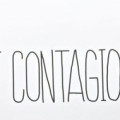
Prior to losing my father to suicide, it was not terribly uncommon for me to dish out the phrase, “I’d kill myself” in conversation (at the thought of sitting through a particularly long meeting) or make the gun-to-head gesture while telling a story about something annoying. Similarly, I didn’t think twice when those around me did the same. That’s because the notion of suicide was so far from my reality that these innuendos felt perfectly appropriate and acceptable. But, one split second act changed my stance on the use of these and similar terms and motions forever. As a survivor of suicide, I can think of nothing worse than uttering or hearing another human being casually say “I’d kill/shoot/hang myself” or “jump out the window,” etc., especially in regards to something as trivial as sitting in traffic or receiving the wrong drink order at the coffee shop. When a loved one has reached the point where life is too painful to bear, knowing that thought actually did cross their mind and come to fruition is gut-wrenching. I regret that these words ever came out of my mouth and can only hope they never did while I was unknowingly in the company of another survivor. Now, it has become my personal mission to rally around eradicating “I’d kill myself” from Americans’ vocabularies indefinitely.
If that sounds like an overwhelming feat, consider the progress we’ve made with movements to erase equally-offensive terms from our society. The Think B4 You Speak campaign encourages people to “Say Something Original and pledge to be an ally to lesbian, gay, bisexual and transgender (LGBT) students.” In becoming an ally, a promise is made not to use homophobic words and phrases – such as “that’s so gay” – and to educate others when they’re used. Becoming more aware isn’t just a nice thing to do. A recent study by the University of Michigan found that words like this can wound victims for life. Research shows the commonly-used phrase “that’s so gay” to describe something undesirable can have negative consequences for gay, lesbian or bisexual students. Hearing the phrase often was found to increase students’ risk of health problems and feelings of isolation. Organizations also exist to eliminate the use of “that’s retarded.” As The R-Word site suggests, “the prejudice and discrimination to people with intellectual and developmental disabilities is BAD…and WRONG!” They explain using the word “retard” hurts individuals and families of those with disabilities. As with Think B4 You Speak, they offer a voluntary pledge by Jenna Glatzer: “I pledge that I will not use the words “retard” or “retarded” to mean “stupid.” I understand that this is hurtful to people who have disabilities and people who love them, so I will be careful with my words. I will also try to remember to pay attention when other people use these words, and I’ll ask them to stop.”
While I don’t have any statistics on the rate or reduction in the use of these particular phrases, I personally feel like they have become much less common to non-existent in my circles. However, it’s rare that I go a couple of days without hearing friends, co-workers or strangers, many of whom know (but have likely forgotten) that I lost my dad to suicide say they’d kill themselves over the silliest things. I do my best to maintain my concentration on the larger message they’re usually trying to convey, burying my true feelings – but why? I actually worry about embarrassing someone mid-sentence in a rant about the bus system or post office with the morbid reminder that pretending to shoot themselves in the head rattles me to my core. The effort to eliminate these instances goes both ways, with survivors raising their voices and unknowing people becoming more self-conscious.
Please join me in adopting and sharing our pledge, founded in eradicating “I’d kill myself” from our language: “I pledge that I will not use the phrase ‘I’d kill myself’ or use gestures that make light of suicidal acts when I am feeling annoyed. I understand that suicide is a tragic event and that my words, even if unintentional, hurt those who have lost a loved one this way. I will try to remember to pay attention to my comments and actions and to educate others to do the same.” Television shows, movies and everyday conversations are littered with these innuendos, reminding us what our friends or family members chose to do. But, every pledge to stop them will help. On behalf of suicide survivors you may know or will ever encounter in the future, we thank you.
Image sourced from Google Images.




Love this. To paraphrase Maya Angelou, when we know better, we do better. It’s always good to consider intent and awareness level of the speaker, but kind and thoughtful information is usually well received in my experience. Keep up the advocacy.
I love that sentiment! Thank you for sharing.
I am glad you gave voice to this. My own way of looking at it is our life experiences change the “filters” that we have — the things that govern which of the millions of sights and sounds we are exposed to every day will actually register with us consciously. After I became a dad, every room I walked into with my babies came to me as a series of power outlets, sharp corners, and small things that we needed to pick up lest they find a way into small mouths. Things I never would have noticed before. When I lost my little sister to cancer, I instantly lost the filter that relegated the dozens of commercials, stories, and comments we hear every day about cancer to just background noise. Suddenly, I heard them all. When I skimmed the paper, they jumped out at me. And when my other little sister chose to end her life a few years later, like you I was suddenly aware for the first time just how often we as a society “talk” about suicide. Mind you, it is the one subject that no one wants to talk about for real, because we don’t know how. But our normal conversation is filled with references to suicide — almost always in the mordant, joking way you describe. “If I have to [fill in menial work task] one more time, I’m going to shoot myself in the face.” The sorts of things that I heard before, and even said myself, without giving it a second thought, were suddenly like little punches in the gut. People don’t mean anything bad by it; they just don’t think about it. But as someone who has lost siblings to both cancer and suicide, it has struck me that no one ever makes casual remarks or jokes about cancer. Perhaps it is because cancer touches so many more lives that most folks have been touched by it in one way or another, and thus have their own filters removed? Who knows. But I certainly join you in hoping for a day when people aren’t so casual in the way they speak of suicide.
I make the pledge, thank you writing and sharing Becky!
Hi. I am so glad that you wrote this blog post. I recently wrote my own thing about how these innuedos are embedded in my school’s culture. People just don’t seem to think about how their words affect those around them. A lot of people don’t know about how I have had to deal with depression and suicide in my life and I don’t expect them to. I just wish that people would just stop for a second and realize how hurtful what they are saying could be to someone else. I am trying to get my school to take a stance against this and possibly educate the students about what they are saying and the impact it has on people around them.